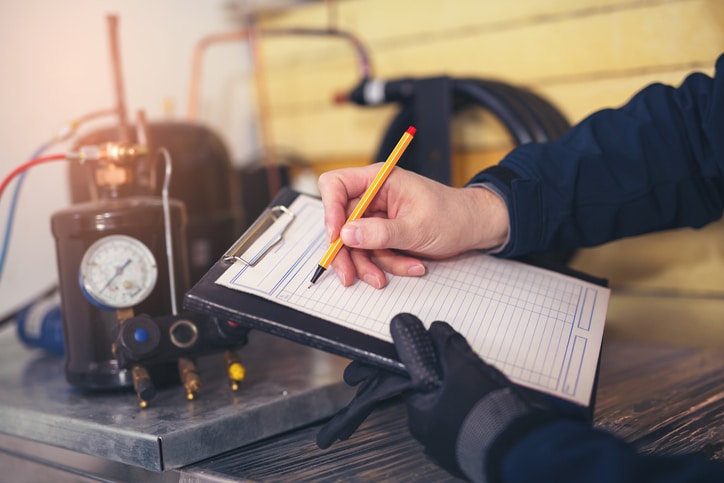
Is your HVAC system up to code? If it isn’t, does it matter? Building codes affect all aspects of construction, including central heating and air conditioning. While details typically differ among individual states and counties, most HVAC code requirements are generally based on the Uniform Mechanical Code (UMC) published by the International Association of Plumbing and Mechanical Officials (IAPMO).
Code violations can result in fines and require corrections to bring the system up to code. That’s just one good reason why you should leave the installation and repair of HVAC systems to qualified licensed professionals. The average homeowner — or local jack-of-all-trades — is unlikely to be informed and up to date on the latest UMC and/or local requirements, much less properly trained and equipped to do a job that complies with code requirements.
Why Code Matters
Even if you are presently living in an existing home with an HVAC system or associated components that don’t meet code, it could still become an issue. First and foremost, units that violate codes may well present a safety hazard, particularly concerning the furnace. Moreover, if you plan to sell the home in the future, existing code violations could be revealed by the standard presale inspection. In that event, you would be required to make expensive repairs and/or replacements in order for the sale to proceed.
A few aspects of an HVAC system that might violate the UMC or state/county codes include:
- Improper and/or unlicensed installation of certain components.
- Heating and cooling components that are not properly sized for the house.
- Ductwork that is too small, made of improper materials, or incorrectly installed.
- Inadequate fresh-air ventilation.
- Improper or faulty combustion ventilation for a furnace.
- Not enough smoke detectors or carbon monoxide detectors.
For licensed HVAC installation and repairs that keep your home up to code, count on the professionals at Jackson & Sons.